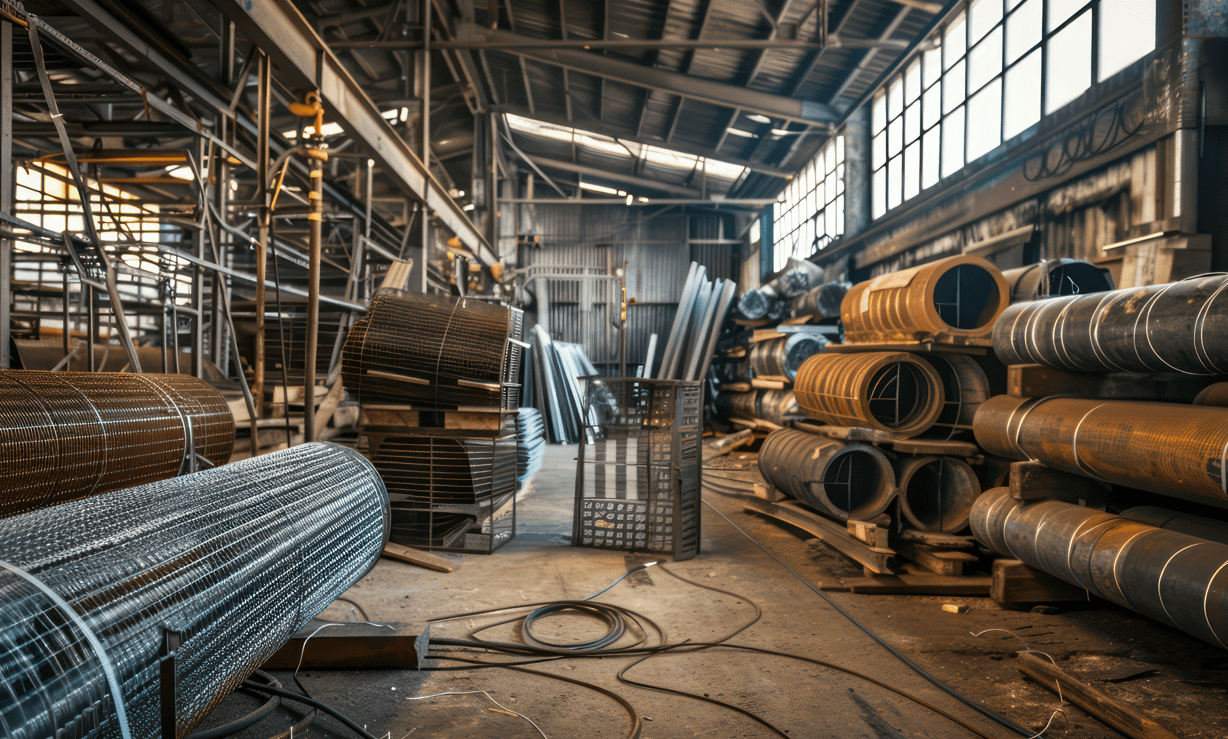Industrial pipes are the backbone of numerous industries, ensuring safe and efficient transport of materials such as water, gas, oil, chemicals, and more. In this blog, we’ll explore the types of industrial pipes, their specific applications, and key maintenance practices to extend their lifespan and maintain efficiency.

Steel pipes are renowned for their strength and durability, making them ideal for transporting oil, gas, and water in high-pressure environments. There are various types of steel pipes, including carbon steel and stainless steel, each suited to different applications based on their corrosion resistance and pressure tolerance.
PVC (Polyvinyl Chloride) pipes are widely used for their lightweight, corrosion-resistant properties. They’re a cost-effective solution for water systems, waste management, and certain chemical processes where high temperatures aren’t involved.
Copper pipes are valued for their excellent conductivity and resistance to corrosion. Although more expensive, copper is commonly used in HVAC systems, as well as in smaller-scale industrial applications that require high temperature and pressure handling.
Often used in large-scale water and sewage systems, concrete pipes are chosen for their robustness and long lifespan. They’re particularly suitable for underground systems and heavy-duty infrastructure projects.
Composite pipes combine materials such as fiberglass and resin, creating a lightweight, corrosion-resistant product ideal for chemical handling, wastewater management, and other specific uses.
Industrial pipes are essential for:
Transporting crude oil, natural gas, and refined petroleum products. These systems require durable, high-pressure-resistant materials like steel and composite pipes.
Safely transporting hazardous chemicals and solvents. In these applications, corrosion-resistant materials like stainless steel and specialized composite pipes are crucial.
Moving potable water and managing wastewater. PVC and concrete pipes are common here, selected for their cost-effectiveness and durability.
• HVAC Systems:
Copper pipes are widely used in heating, ventilation, and air conditioning due to their heat conductivity and ability to withstand high pressures.
• Food and Beverage Production:
Food-grade stainless steel pipes are used to transport liquids and gases safely in production facilities, ensuring they meet strict hygiene and quality standards.
Routine maintenance is vital to prevent leaks, corrosion, and costly repairs. Here are some key maintenance tips:
Routine visual and automated inspections can identify early signs of wear, corrosion, or blockage. Ultrasonic testing and pressure testing are two common methods.
Applying protective coatings or using corrosion inhibitors can prevent metal pipes from degrading over time, especially in systems carrying aggressive chemicals.
Regular cleaning prevents buildup and blockages, particularly important in pipes handling chemicals or wastewater. Flushing the pipes also helps clear residual substances that could contribute to corrosion.
Promptly repairing minor damage can extend the lifespan of pipes and reduce the risk of major failures. Replace parts showing significant wear or irreparable damage to maintain system integrity.
Installing monitoring systems to keep track of temperature and pressure can alert operators to potential issues early, minimizing the risk of pipe bursts or leaks.
Industrial pipes are crucial in enabling essential processes across a range of industries, from energy and chemicals to water management. Choosing the right type of pipe for each application, combined with consistent maintenance, ensures long-term efficiency, safety, and sustainability. By investing in proper maintenance routines and understanding the specific needs of each material, companies can maximize the lifespan and reliability of their piping systems.








